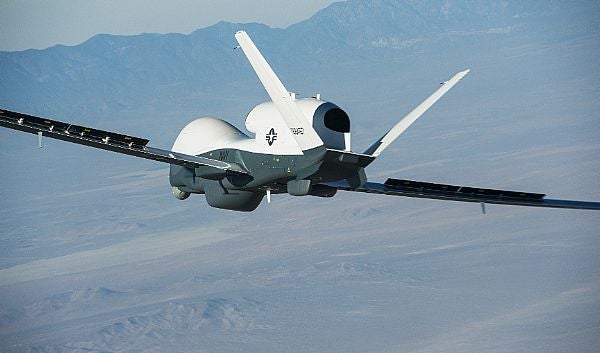
The US Navy and Northrop Grumman have jointly conducted the first flight of the MQ-4C broad area maritime surveillance unmanned aircraft system (BAMS UAS) at Northrop’s manufacturing facility in Palmdale, California, US.
During the 80-minute test-flight, the UAS has operated autonomously and reached an altitude of 20,000ft in a restricted airspace and validated its control systems capabilities.
The test has also marked a critical step ahead in maturing Triton’s systems prior to its deployment to provide intelligence, surveillance, and reconnaissance (ISR) capabilities to troops.
Persistent Maritime UAS office (PMA-262) programme manager captain Jim Hoke said that the team would collect data in the next few years that is essential to certify the system for operational use.
Developed as a naval version of the US Air Force’s RQ-4 Global Hawk aircraft, the MQ-4C UAS has been designed to provide signals intelligence (SIGNET), command, control, communications, computers, intelligence, surveillance and reconnaissance (C4ISR) and maritime strike capabilities.
Patrol and Reconnaissance Group commander rear admiral Sean Buck said: "When operational, the MQ-4C will complement our manned P-8 because it can fly for long periods, transmit its information in real-time to units in the air and on ground, as well as use less resources than previous surveillance aircraft."
Powered by a Rolls-Royce AE3007H turbofan engine, the high-altitude, long-endurance UAS can cruise at a maximum speed of 357mph and provides constant surveillance for the Maritime Patrol and Reconnaissance Force (MPRF) to carry out littoral missions.
In addition, the UAS supports missions including battle damage assessment, maritime interdiction, anti-surface warfare, battle-space management and targeting missions for the navy.
The MQ-4C Triton UAS is scheduled to undergo further trials for the next several months prior to its transitioning to Patuxent River, Maryland, US, later this year.
Image: MQ-4C Triton UAS conducting mission. Photo: courtesy of Northrop Grumman, by Bob Brown.





